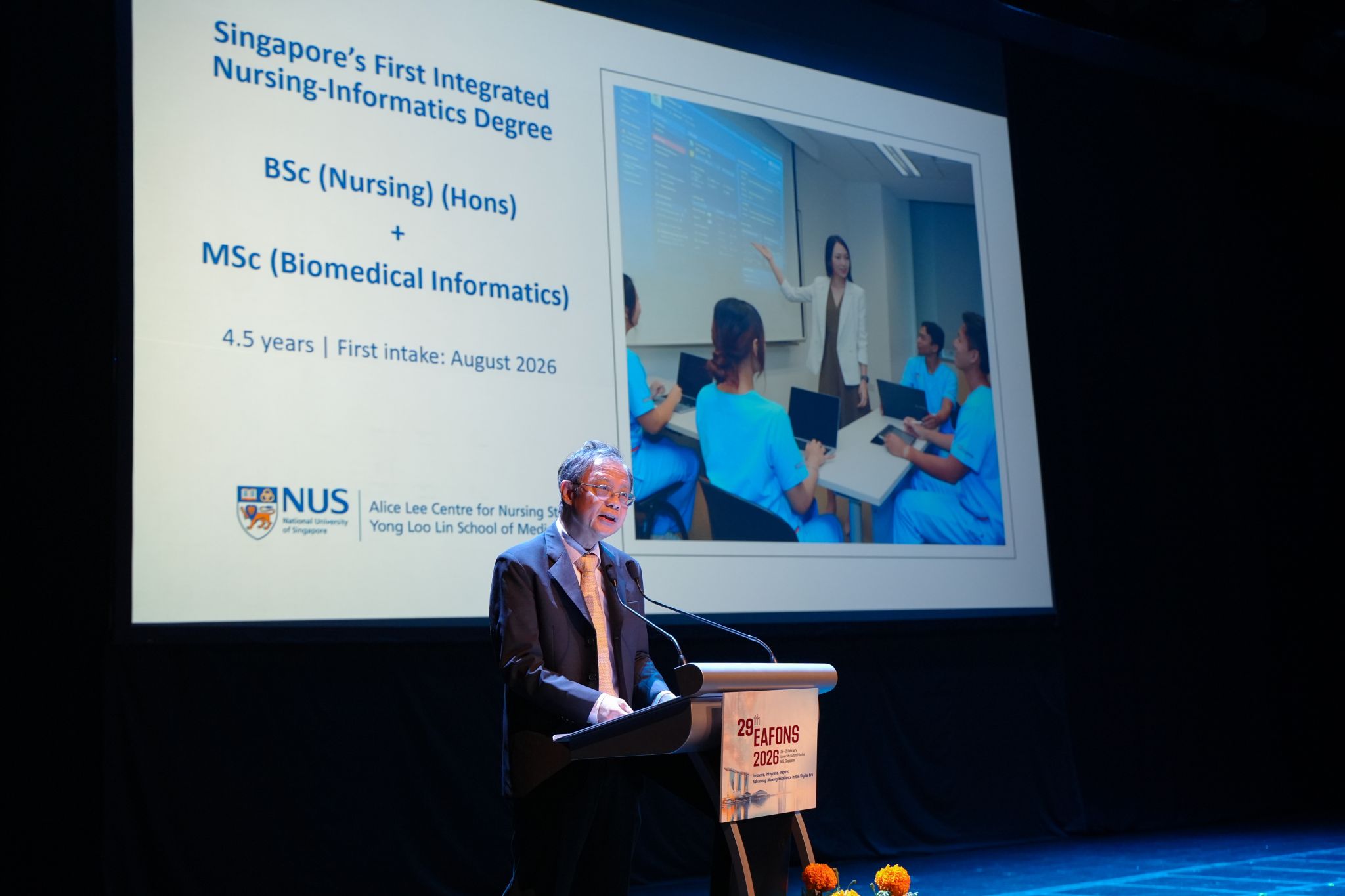
Latest News & Events

Launch of SG's First Nursing-Informatics Degree
Singapore's first Concurrent Degree Programme in Nursing and Biomedical Informatics - advancing the integration of clinical excellence, informatics and AI.

Intro to Design Thinking & AI in Healthcare Innovations Workshop
The workshop is tailored for healthcare professionals new to the field and eager to explore the synergy of Design Thinking with AI in healthcare.

Asia Pacific Medical Education Conference 2026
DBMI Faculty Dr Judice Koh presented on Interprofessional Education based on BMI1101A/C (Pillar 5) at the recent APMEC 2026, held in Yiwu, China.




